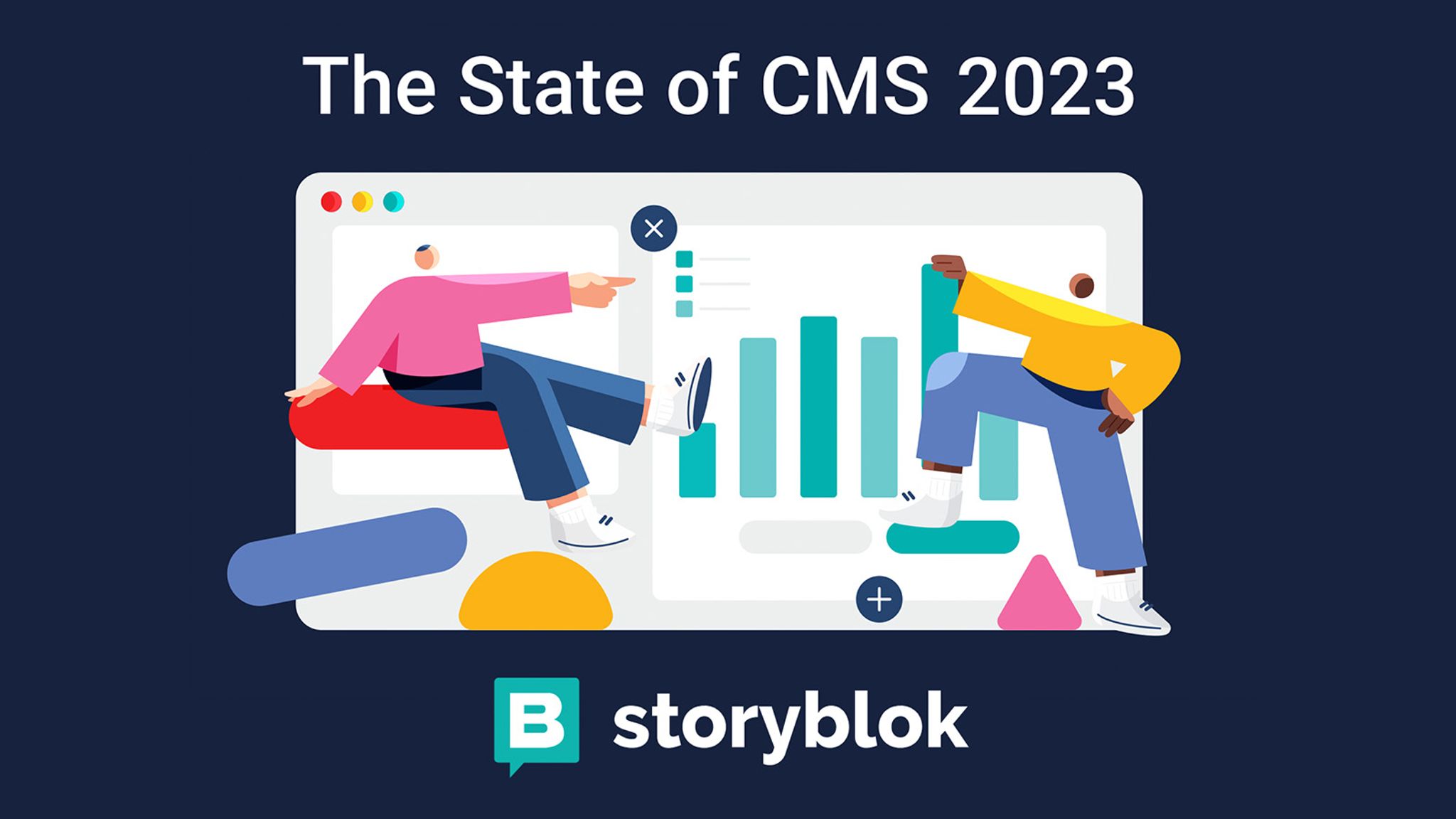Storyblok Publishes Reports on the State of CMS in 2023, Reveals Insights on US and Global Markets

What's the story with CMS in 2023? Ask Storyblok.
The headless CMS vendor just published a compelling set of reports about the current state of CMS, reflecting respondents' opinions across 7 countries.
The studies offer interesting data on the most popular content management systems, the pain points and features driving users to new systems, and how organizations plan to change and improve their CMS.
Storyblok published "The State of CMS 2023" global report in February, featuring survey data from 1,639 respondents. Last week, it offered a focused US edition reflecting the opinions of 624 respondents. Both samples shed light on various topics, including how users leverage their CMS, which teams represent the largest portion of users, and whether they anticipate using their CMS in the future.
Monoliths are still winning the popularity contest
Based on Storyblok's research, platforms like Adobe, WordPress, and Webflow remain the leading CMS choices among respondents. It's worth noting that while WordPress continues to own the largest market share as an open source CMS, other vendors like Adobe are considered DXPs – which include CMS as part of their stack.
In the research, headless accounted for 36% of CMSes. Headless architecture is still a much newer application of content management, and Storyblok hypothesized that lower adoption rates might be due to a lack of knowledge – particularly in the US.
Storyblok also noted that there had been a marginal increase in the percentage of those surveyed using a headless CMS and a marginal decrease in those using a monolithic CMS since its previous 2022 State of CMS report.
Other data pointed to US respondents as being more receptive to trying a new CMS for proof of concept – suggesting that headless adoption rates might change if they received more exposure to headless concepts.
Also worth noting: users seem to be "keeping the faith" in their current CMS. Accoring to the research, 87% percent of respondents believe their current system will be effective in the coming years.
Omnichannel is driving a multi-CMS model
In the U.S. data, 42% of respondents reported utilizing more than one CMS, indicating that one system might not meet the needs of different departments or functions within a company. However, 44% said they utilized only one CMS – nearly an even split.
Of those utilizing only one CMS, most respondents indicated two to three teams within their organization are using the same CMS, with marketing and sales dominating that usage.
Because there was a strong quotient of organizations using more than one CMS, the study's analysis contends that one CMS cannot satisfy the needs of each department, and functionality might be limited with a monolithic approach.
Respondents to the study said their CMS is used most prolifically for websites, mobile apps, and eCommerce. In a change from last year’s study, the third most listed reason for organizations to use more than one CMS was to satisfy the need for omnichannel content – a decisive indication that additional multimedia channels are gaining importance in traditional marketing strategies.
Customers using headless CMS reported satisfaction
Those surveyed who had switched to a headless CMS overwhelmingly reported satisfaction with their choice. The leading reason: headless CMS is “time-saving." Increased ROI and traffic were also listed as top reasons (among others).
While monolithic platforms may still have the upper hand, headless is clearly gaining ground. The need for omnichannel content has also crept up as the role of marketing to consumers continues to shift. With headless CMSes promising great opportunity in this space, it’s something to watch before the next State of CMS drops.
"The State of the CMS 2023" reports offer relevant and revealing data about the trends in the CMS market – and are well worth a read. You can download them at the links below:
The State of the CMS 2023 Report
The State of the CMS 2023: United States Report
About Storyblok
Storyblok is a next-generation headless content management system revolutionizing how storytelling scales. With an API-first approach, it helps users create and scale content to any digital channel. Features like the visual editor and digital asset manager mean content creators can work independently. The power of headless’s best-of-breed approach also means that developers can build a perfectly customized tech stack, all protected by Storyblok’s ISO 27001 security certification. Add the benefit of Storyblok’s advanced collaboration suite, and all these teams can come together to work together directly within the CMS. In a constantly changing world with more user experience demands than ever before, brands such as Netflix, T-Mobile, and MindValley trust Storyblok to provide secure, personalized experiences to their users.